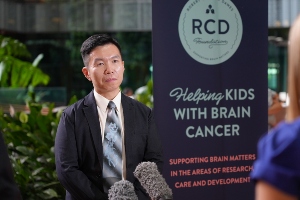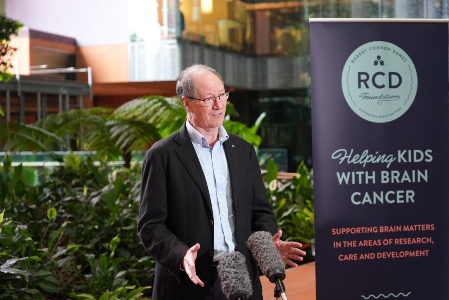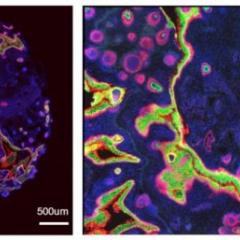Two leading University of Queensland researchers have joined forces to begin developing an mRNA vaccine for children with brain cancer.
Brain cancer remains the deadliest paediatric cancer and survival rates have not improved in decades.
The project will target children with ependymoma cancers, which do not typically respond to chemotherapy.
Professor Di Yu, Director of the Ian Frazer Centre for Children's Immunotherapy Research at UQ’s Child Health Research Centre said paediatric brain tumours were good at hiding from the immune system and needed to be exposed before they could be targeted.

“An mRNA cancer vaccine can direct the body to produce large amounts of specific tumour molecules, which are not cancerous, so the immune system can be ‘trained’ to efficiently recognise the tumour,” Professor Yu said.
“This creates an army of targeted ‘immune’ missiles against the brain tumour.”
Professor Yu said immunotherapy was a game-changer in treating cancer, offering unprecedented solutions for many adult cancers.
Funded by UQ and Children’s Hospital Foundation (CHF), the Ian Frazer Centre for Children's Immunotherapy Research was established in 2022 to develop new therapies for children’s incurable conditions, in particular cancer.
“We're on a mission to eventually control all types of paediatric brain cancers,” Professor Yu said.
Professor Brandon Wainwright, Co-Director of the Children’s Brain Cancer Centre at UQ’s Frazer Institute, said the project was leveraging mRNA technology proven effective in controlling the COVID-19 pandemic.

“For more than 30 years we have been unable to significantly improve the survival rates of children with brain tumours, so it is time to harness the power of the immune system via the use of mRNA vaccines,” Professor Wainwright said.
“The $1.2 million of new funding for this project from the Robert Connor Dawes Foundation will allow us to commence laboratory research and to collaborate with a number of international colleagues to demonstrate the principles of vaccine design and delivery.
“Thanks to the RCDF, we have been able to assemble a world class multi-disciplinary team over a short period of time and we look forward to an exciting year ahead.”
The project forms part of larger work on brain cancers underway at UQ.
“Our research is only able to continue thanks to generous support from the Children’s Hospital Foundation, whose funding enabled the establishment of both my Centre and Professor Yu’s,” Professor Wainwright said.
“This new and exciting collaboration shows the value of long-term investment in important activities like this, and really leverages existing major investments by the Children’s Hospital Foundation.”
Media: UQ Faculty of Medicine Media, med.media@uq.edu.au, +61 436 368 746.



